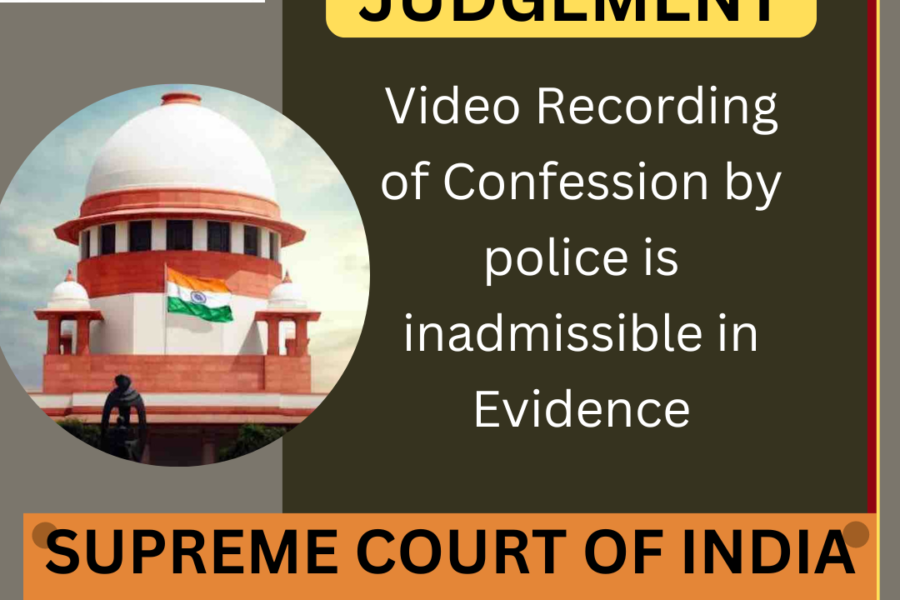MUNIKRISHNA @ KRISHNA ETC. VS. STATE BY ULSOOR PS.
CRIMINAL APPEAL Nos. 1597-1600 OF 2022
Facts of the case
The appellants have challenged the High Court of Karnataka’s judgement and order dated 31.8.2010 in a Criminal Appeal. This order upheld the Trial Court’s conviction and sentence against the appellants, which found them guilty under Section 302 read with Section 34 IPC and sentenced them to life in prison.
The accused, according to the police, admitted to 24 offences after being taken into custody from a school building. Their admissions that they had planned and carried out killings were captured on camera, and that footage served as the basis for their conviction.
Judgement and Observation of the Courts
The bench immediately stated, “In the case at hand, the entire case of the prosecution is built upon the confessional/voluntary statements made by the accused persons before the police and the recovery of the alleged weapon of murder recovered at the pointing out of the accused and the recovery of alleged stolen gold material from a jewellery shop, again, on pointing out of the accused.”
The bench went on to say, “The Trial Court and the Appellate Court erred greatly in relying on the accused’s voluntary remarks and their videotaped statements. The Indian Constitution’s Article 20(3)7 prohibits forcing an accused person to testify against themselves. As previously mentioned, a confession made by an accused person in front of a police official is not admissible as evidence under Section 258 of the Indian Evidence Act, 1872.”
“We have gone through Chart Exh. P-29,” the bench said. According to the aforementioned chart, the current appellants were allegedly implicated in another crime. This led to the creation of Special Leave Petition (Crl) Diary No. 24079 of 2020, which was listed with the immediate appeal that was brought before us. We are still debating the issue at this time. The other accused gang members’ alleged participation in several comparable activities, for which there was no hard evidence save the appellants’ confessions, therefore weighed heavily with the Trial Court.”
At last, the Supreme Court ruled that “Normally, this Court leaves concurrent factual determinations alone, as they are in this particular case. However, in this particular case, it has become necessary to overturn the conclusions because the Sessions Court and the High Court both disregarded established criminal jurisprudence principles and relied on facts and evidence that are unquestionably inadmissible in a court of law. The crime was, to put it mildly, horrifying. However, connecting the offence to the current appellants is a task that was supposed to be done in court using accepted legal concepts. This has not been completed. This Court in Sharad
Birdhichand Sarda (supra) has cautioned thus: –
“179. We can fully understand that though the case superficially viewed bears an ugly look so as to prima facie shock the conscience of any court suspicion, however great it may be, cannot take the place of legal proof. A moral conviction however strong or genuine cannot amount to a legal conviction supportable in law.
180. It must be recalled that the well-established rule of criminal justice is that the “fouler the crime higher the proof”. In the instant case, the life and liberty of a subject was at stake. As the accused was given a capital sentence, a very careful, cautious and meticulous approach was necessary to be made.”
Adv. Khanak Sharma


Always providing clarity and peace of mind.
generic for prinivil
They make prescription refills a breeze.